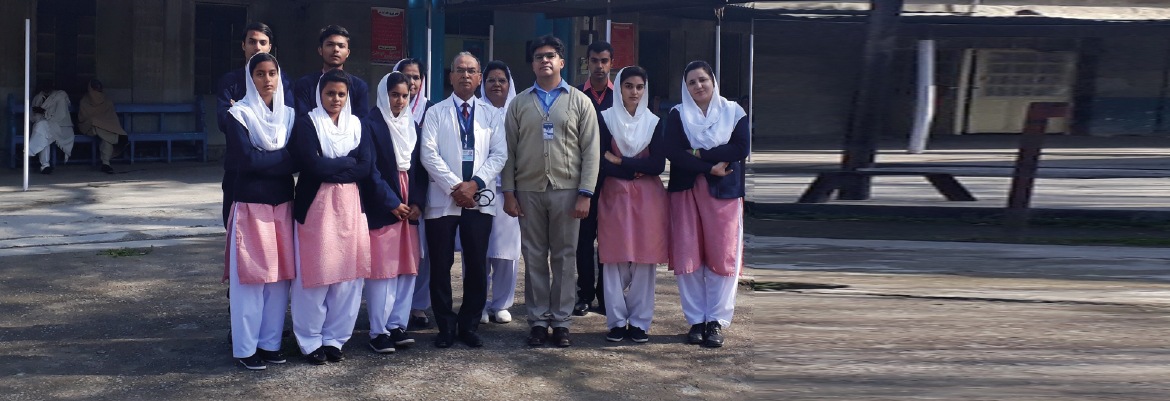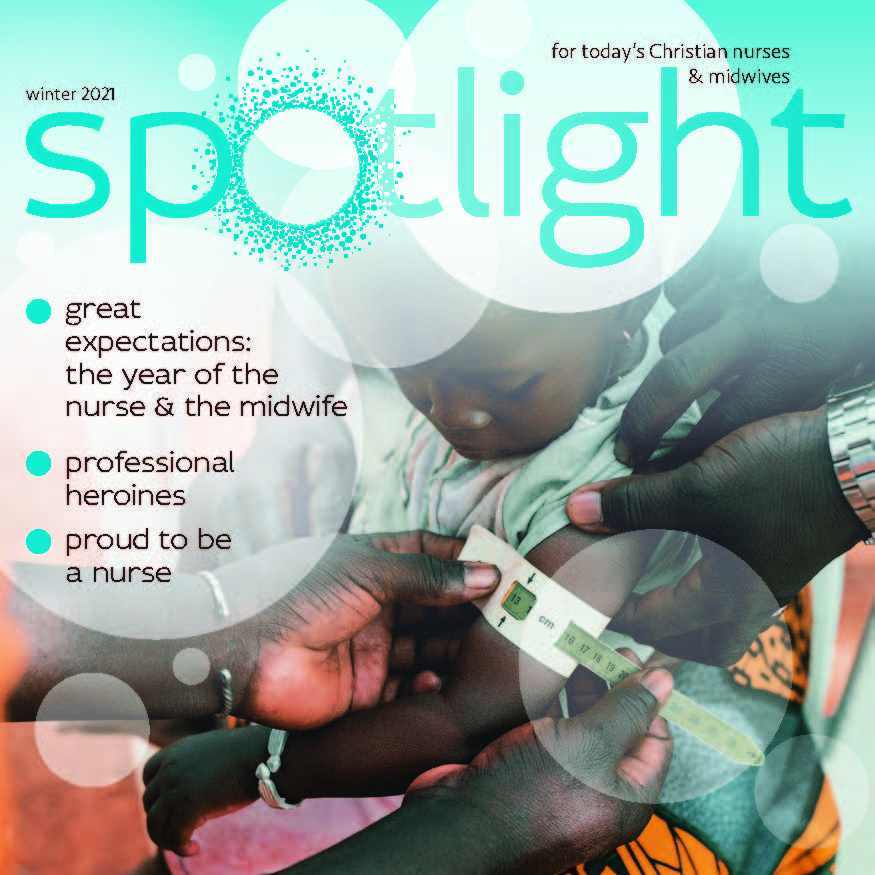However, after spending two years writing the business plan and securing funding, the new government in Pakistan decided to require medical and dental colleges to reapply for certification to run courses. That basically put an end to the project, as the college was too busy trying to get their medical and dental courses re-registered to consider a new course for nurses.
It was then that I was approached by Father Simon from this small community just outside Rawalpindi. He needed people who could help him caring for the people in his parish. It was impossible for a priest or even two or three priests to meet the needs of this vulnerable, demoralised community that live in fear of discrimination because they are Christians in a Muslim country. He knew about the Nurses Christian Fellowship International (NCFI) [3] work with training Faith Community Nurses (or Parish Nurses), [4]because we had already started an NCFI training program through Nurses Christian Fellowship Pakistan.
But Parish Nurses are costly to train, employ and support, so it was not a sustainable solution for this community. What we really needed to do was to select young people from the community itself who have just finished school and train them up to be healthcare workers, what we would call Parish Community Health Visitors.
With the funding that I already had, we selected ten young people; four men and six women, and we sent them to a Christian hospital nearby where we funded them to do a year's training as nurse assistants. This gave them the basics of anatomy, physiology, hygiene and care, etc.
With the extra funding that I had been applying for, we had enough to run the project for two years. We got together a core team in partnership with PRIME. Our program leader is a missionary nurse working with Interserve. We have had tremendous support from Lahore Anglican Theological College throughout, making this very much an interdenominational approach. Part of the project will be to assess how these PCHVs will make real changes for this community - allowing us to see if this is a model that can be replicated elsewhere in Pakistan and further afield, something. NCFI is very interested in.
The ten young people came back in February, but obviously with the emergency COVID situation, we have not been able to deploy them. But we have continued our training programme using Zoom. They are meeting in the church school, initially for a full introductory week and now twice weekly in the afternoon from two until five for three hours' teaching. We have developed a course of a hundred hours' community education, containing everything that they need to deliver basic care with a spiritual, holistic perspective. However, we have told them right from the beginning, they are not going out to do clinical interventions. They do not have the qualifications, skills or the experience to do that, but they can refer to other services, including the Parish Nurses. They are there to give health education, health promotion, spiritual support and counselling, and to represent the church.
The PCHVs will work in five pairs, and initially they will create a home profile for every household in their patch (about 50 homes) that they visit every month for the next two years. We received funding for computer tablets that they will use to fill in home profile details and follow up on visits to the homes, including advice and help given, and what the outcomes have been. This data will go directly to the researchers.
2020 - the Year of the Nurse and the Midwife
Most nurses and midwives have a very poor recognition in the developing world. The main problem is the medical profession. Doctors in most developing countries do not allow nurses to fulfil even the possibility of their role. They are not permitted to use all their training and skills, only to do as they are told, and not take any control or make any decisions.By and large, doctors do not work in the community because they do not get highly paid and they cannot carry out private practice. So, if we want to improve community health, as the World Health Report has shown repeatedly, we need to invest in nurses, midwives, and lower-level community health workers rather than doctors.
In my experience, many of those lower-level workers are smart, skilled and motivated. A lot of them are in that position because they have not had opportunities to get an education or skills training. But if we can give them the skills and the opportunities, they can make a real difference.
the difference Christians bring to nursing
Obviously, this project is clearly a Christian health outreach to a Christian community, so we can be more open about spiritual needs and spiritual support. But how does it change when we go out into a wider culture? According to The World Health Organization over 80 per cent of people in the world have a religious worldview of some kind or another. And that actually plays an integral role in their health. If you then ignore that, it is ignoring a key dimension within health and wellbeing for that individual and that community. And while secular nursing education will now bring in spirituality as a dimension of care, it is generally with a very soft understanding of the spiritual aspects of health.What we bring as Christians is a much stronger, fundamental belief in relationships - relationships with one another and a relationship with God through prayer and worship at the centre of our spirituality.
As a result, we approach people holistically, as spiritual beings in the context of a community, not as isolated individuals. That is what we bring to the care of our patients as Christian nurses and midwives.Barbara Parfitt CBE, DHC, PhD is Emeritus Professor and the former Dean of the School of Nursing at Glasgow Caledonian University and has been involved in developing nurse education across the globe as well as being part of the leadership of Nurses Christian Fellowship International (NCFI)
































